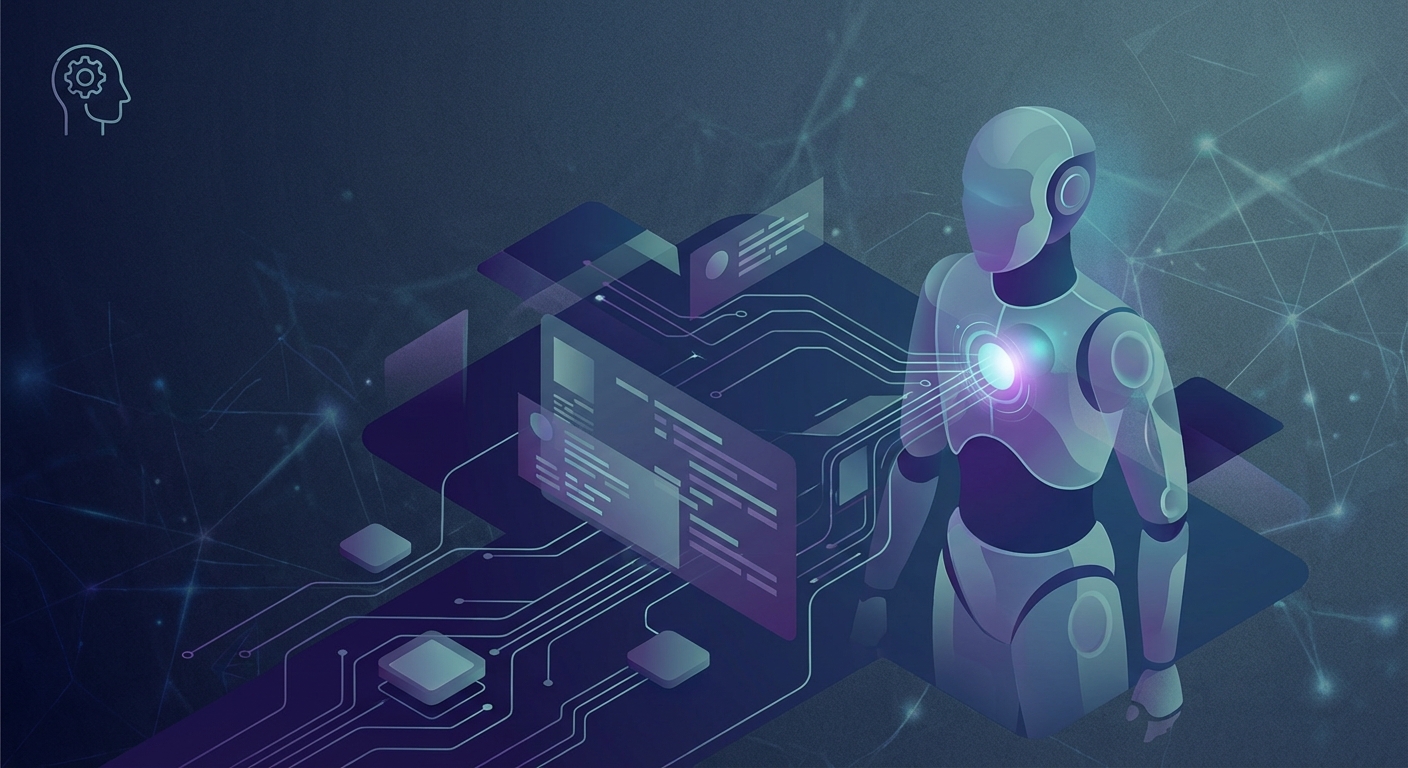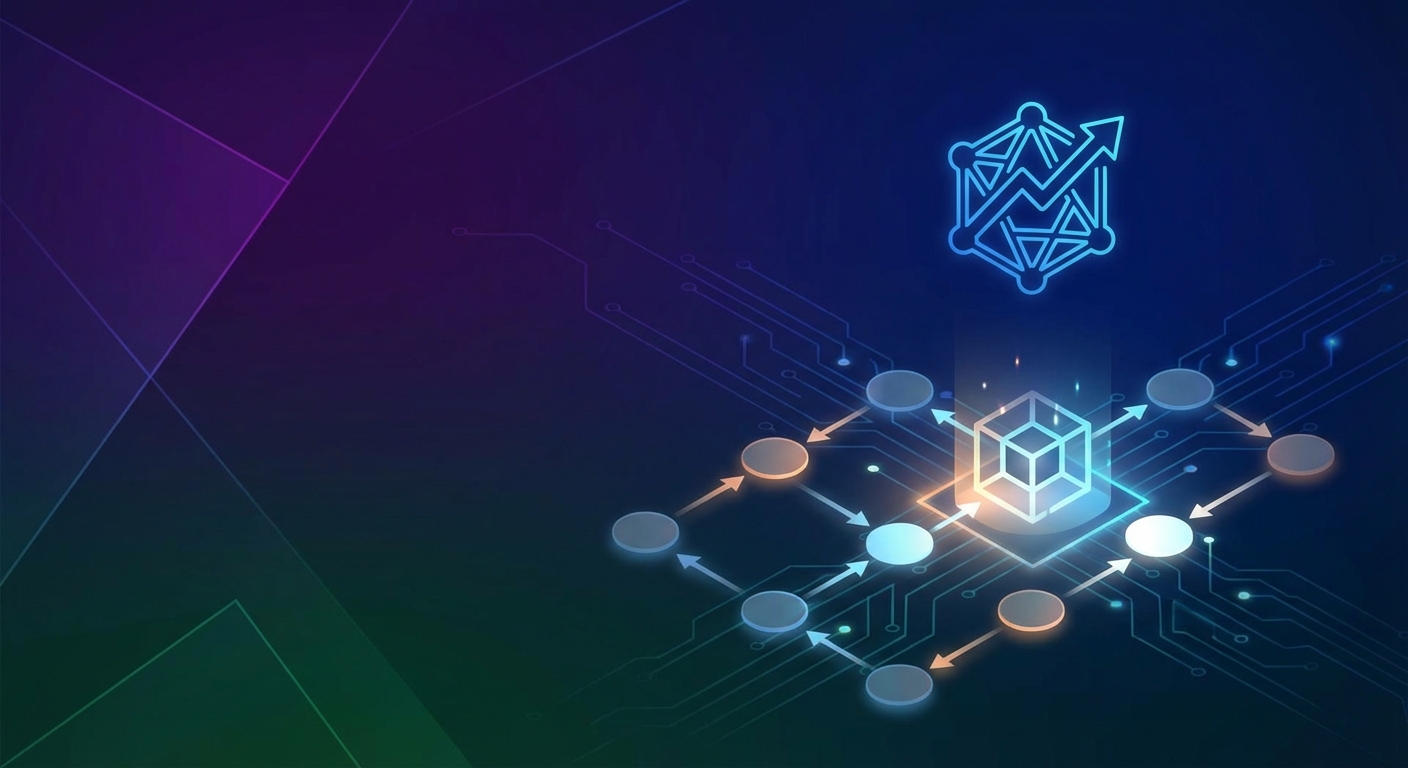The Role of AI Agents in Transforming Business Operations Today
TL;DR
- This article covers how ai agents are reshaping business operations, focusing on automation, efficiency, and decision-making improvements. It explores real-world applications across different industries, highlighting the benefits and challenges of integrating AI agents. Also, it offers insights into future trends and best practices for successful implementation.
Introduction: The Rise of AI Agents in Business
Okay, so ai agents are kinda blowing up right now. But what are they, really?
Well, simply put, AI agents are like digital assistants on steroids. (AI Agents - The AI Intelligence) They're not just following pre-set instructions; they're learning, adapting, and making decisions on their own. Think of it like this:
- They automate repetitive tasks, like sifting through invoices in finance (thank god!) or scheduling appointments in healthcare. This means they can handle those tedious jobs humans don't wanna do.
- They can learn from data, constantly improving their performance. Imagine an ai agent in retail that learns customer preferences to personalize recommendations - pretty cool, huh? This learning happens through things like machine learning, where the agent gets better the more it "sees."
- Unlike basic automation, ai agents adapt to new situations. For example, an ai agent in supply chain management can reroute deliveries when there's an unexpected delay. It's not just following a script; it's thinking on its feet. This adaptation can involve reinforcement learning, where the agent learns from trial and error to achieve a goal.
And honestly, that's what sets them apart. It's not just about doing things faster; its about doing them smarter. Now, let's talk about why businesses are actually jumping on the ai agent bandwagon.
AI Agents in Action: Transforming Key Business Functions
Ai agents aren't just cool tech; they're changing how businesses actually run, you know? Let's dive into how these agents are shaking things up across different departments, and its not just chatbots anymore.
Okay, first up: customer service. Everyone hates waiting on hold, right? Ai agents are swooping in to fix that.
- Chatbots and virtual assistants are providing instant support. These aren't your grandma's chatbots either; they're getting smarter all the time. They can answer FAQs, guide users through troubleshooting steps, and even escalate complex issues to human agents, seamlessly.
- Personalized customer interactions are becoming the norm. Ai agents can analyze customer data to provide tailored recommendations and support, making each interaction feel unique. It's like having a personal assistant for every customer.
- And get this: 24/7 availability. No more waiting for business hours. Ai agents are always on, providing support whenever customers need it. Imagine the peace of mind for both customers and support teams.
Sales and marketing are getting a serious boost too. Ai agents are helping businesses find leads, predict sales, and create personalized campaigns.
- ai-powered lead generation is making it easier to find potential customers. Ai agents can analyze data to identify leads that are most likely to convert, saving sales teams time and effort.
- Predictive analytics for sales forecasting is helping businesses plan ahead. Ai agents can analyze historical data to predict future sales trends, allowing businesses to make informed decisions about inventory, staffing, and marketing spend.
- Personalized marketing campaigns are becoming more effective. Ai agents can create targeted campaigns that resonate with individual customers, increasing engagement and driving conversions.
Imagine an ai agent that analyzes customer reviews to identify common pain points. It then automatically generates suggestions for product improvements. Or picture an ai agent that monitors social media for mentions of your brand and responds to customer inquiries in real-time. That's the power of ai agents in action.
Next, we'll see how ai agents are revolutionizing supply chain management.
Revolutionizing Supply Chain Management
The supply chain is a beast, right? So many moving parts, so many things that can go wrong. Ai agents are stepping in to tame that beast.
- Demand forecasting and inventory optimization: Ai agents can crunch historical sales data, market trends, and even weather patterns to predict demand with way more accuracy. This means less overstocking and fewer stockouts.
- Route optimization and logistics: Got a delivery delayed? An ai agent can instantly find the best alternative route, considering traffic, weather, and delivery windows. It's like having a super-smart dispatcher.
- Warehouse automation and management: From guiding robots to managing inventory placement, ai agents are making warehouses run smoother and faster. They can even predict maintenance needs for equipment.
- Supplier risk assessment: Ai agents can monitor news and financial data to flag potential risks with suppliers, helping businesses avoid disruptions before they happen.
Basically, ai agents are bringing a new level of intelligence and agility to the complex world of supply chains.
Benefits and Challenges of AI Agent Implementation
Okay, so ai agents sound amazing, right? But its not all sunshine and roses, there's definitely some bumps in the road to think about. What are the actual downsides?
Let's start with the challenges, though. Because you gotta know what you're up against.
- Implementation costs and complexity? Yeah, that's a big one. Setting up ai agents can be expensive and complicated, especially for smaller businesses that don't have a lot of technical expertise. You need the right infrastructure, the right software, and the right people to make it all work.
- Data privacy and security concerns are another major issue. ai agents often need access to sensitive data, which raises concerns about privacy breaches and security vulnerabilities. You need to make sure that your data is protected and that you're complying with all relevant regulations.
- Ethical considerations and bias are something that a lot of people aren't talking about. ai agents are only as good as the data they're trained on. If the data is biased, the ai agent will be biased too. For example, if an AI hiring tool is trained on historical data where men were disproportionately hired for certain roles, it might unfairly penalize female applicants.
- And last but not least, there's the skills gap and training requirements. You need people who know how to build, deploy, and maintain ai agents. And that's not always easy to find.
But, like, it's not all perfect. There are some serious benefits to be aware of too.
- ROI and cost savings are a major draw. Think about it: ai agents can automate tasks that humans used to do, which means fewer salaries to pay. For example, in finance, ai agents can automate invoice processing, reducing the need for manual data entry. A smaller business could see real gains by shifting away from traditional data entry roles.
- Efficiency gains and productivity improvements are another big win. ai agents can work 24/7 without getting tired or needing breaks. In healthcare, ai agents can schedule appointments and manage patient records faster than a human ever could.
- Data-driven decision-making is where things get really interesting. ai agents can analyze massive amounts of data to identify trends and insights that humans might miss. Imagine an ai agent in retail that analyzes customer purchase history to predict future demand.
- And then there's the competitive advantage. Businesses that adopt ai agents early can gain a leg up on their competitors. They can offer better customer service, make faster decisions, and operate more efficiently.
So, yeah, ai agents are powerful, but they're not a magic bullet. You need to weigh the benefits and challenges carefully before you dive in. Next, we'll look at some of the practical considerations for implementing ai agents in your business.
Best Practices for Successful AI Agent Deployment
So, you're ready to unleash these ai agents, huh? Not so fast! Deploying them ain't just plug-and-play - you really have to think it through. Let's talk about how to set yourself up for success, cause honestly, some folks just dive in and then wonder why it's a mess.
- Start small and iterate: Don't try to boil the ocean. Pick a manageable project, get it working, then build from there. Maybe start with automating basic customer service queries before tackling complex claims processing.
- Involve the right people: This ain't just an it thing. Get input from the folks who'll actually use the ai agents. Like, talk to your customer service reps, your sales team, your warehouse managers, you know? They'll have insights you'd never think of. Customer service reps know the real pain points customers face, sales teams understand what makes a good lead, and warehouse managers see the day-to-day operational bottlenecks.
- Plan for the long haul: ai agents ain't set-it-and-forget-it. They need constant monitoring, tweaking, and updating. Think about how you'll handle that from day one.
And listen, don't expect perfection right away. It will take time to fine-tune your ai agents and iron out the kinks. Be patient, be persistent, and don't be afraid to experiment. You got this.
Okay, next up? We'll dive into how to handle the ethical considerations and make sure you're not creating some kind of ai monster.
Navigating Ethical Considerations and Avoiding AI Monsters
So, we talked about bias, but that's just one piece of the ethical puzzle. Building AI agents responsibly means thinking about a few key things to avoid creating unintended negative consequences – basically, not building an "AI monster."
- Transparency and Explainability: People need to understand, at least to some degree, why an AI agent made a certain decision. If an AI agent denies a loan, for example, the applicant should have some idea of the factors that led to that decision. This builds trust and allows for appeals.
- Fairness and Equity: Beyond just avoiding biased data, you need to actively design AI agents to be fair across different groups. This might involve setting specific fairness metrics and testing for them rigorously.
- Accountability: Who's responsible when an AI agent messes up? It's crucial to establish clear lines of accountability within your organization. Is it the developer, the project manager, or the business owner?
- Human Oversight: For critical decisions, especially those with significant human impact, always have a human in the loop. AI agents should augment human capabilities, not completely replace human judgment in sensitive areas.
- Data Privacy and Consent: Be upfront about what data you're collecting and how it's being used. Get proper consent, and ensure robust security measures are in place to protect sensitive information.
By keeping these ethical considerations front and center, you can build AI agents that are not only powerful but also trustworthy and beneficial.
The Future of AI Agents in Business
Okay, so, ai agents are cool and all, but what's really next? I mean, are we all gonna be replaced by robots? Probably not, but things are gonna change, that's for sure.
Here's what I'm seeing:
- NLP and computer vision are gonna get way better. Like, ai agents will be able to understand what you mean, not just what you say. Imagine an ai agent that can analyze a customer's facial expression during a video call to gauge their satisfaction. Creepy? Maybe a little, but also super useful.
- Edge ai and federated learning are gonna be huge. Instead of sending all your data to some giant cloud, ai agents will be able to learn on the device itself. Think about it - faster response times, better privacy. It's a win-win. Edge AI means the AI processing happens right on your phone or computer, and federated learning lets AI models learn from data across many devices without that data ever leaving those devices.
- Humans and ai agents will work together more. It's not about replacing people; it's about augmenting them. An ai agent could handle the mundane tasks, freeing up humans to focus on the creative and strategic stuff. i think that's neat.
And honestly, I think ai agents are gonna become so integrated into our lives that we won't even realize they're there. It'll just be, like, a seamless part of the way we do things. Is that the future? I think so.




